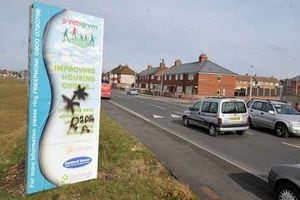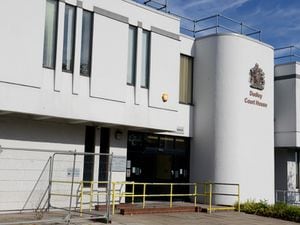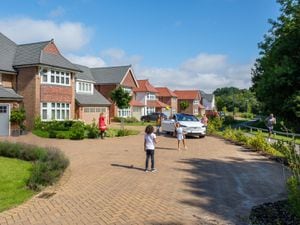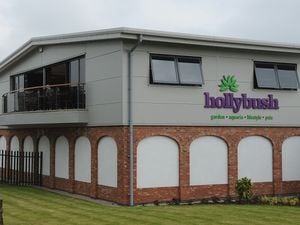Jury still out on New Deal
They were given 10 years and more than £160m to turn around some of the Black Country's most deprived areas.

They were given 10 years and more than £160m to turn around some of the Black Country's most deprived areas.
But did Labour's New Deal for Communities do the job?
The Black Country has three of the 39 schemes set up with £2bn under Tony Blair's government in 1999 and 2001.
Community centres built, high rise flats demolished, roads revamped and wardens on the streets – these were some of the ways the New Deal tried to raise thousands of people out of poverty.
Each scheme has a name – All Saints and Blakenhall Community Development (ABCD) in Wolverhampton, the Greets Green Partnership in West Bromwich and Walsall's New Deal – and shared almost £160m to spend.
In all the areas soaring crime rates, prostitution and poor health of residents were enough for the Labour government, reaching the end of its first term at the turn of the millennium, to pledge between £52m and £56m of funding to each body over 10 years.
But a recent report by the Department for Communities and Local Government thinks the £2bn scheme in 39 deprived areas of the country has not worked.
The report, Tracking Economic Deprivation in New Deal for Communities areas, said there had been "little change in relative levels of economic deprivation" in the NDC areas.
ABCD has a year left to run and a final £6.2m to spend with the £52m New Horizons, formerly Walsall's New Deal, due to finish at the same time.
The Greets Green Partnership finishes at the end of this month.
There are 11,000 residents in 4,000 homes and 500 businesses in All Saints and Blakenhall – so by simple division that works out at just over £4,600 per person and company during the decade.
In a booklet called "Building a Better Future" bosses said an independent poll found 70 per cent of residents thought it was a better place to live now.
But according to the government deprivation has gone up in both Wolverhampton and West Bromwich.
Walsall's New Deal, which covers Blakenall, Bloxwich and Leamore, also appears to have made little difference to people's wealth with a "significant increase in income deprivation rates."
ABCD executive director Tim Clegg dismissed the findings of the report as "out of date" and said: "We have supported local businesses, cut crime, improved housing, transformed our parks and open spaces and built a new school and community buildings. The improvements that we are beginning to see will result in a better educated and healthier community who will in turn will get better jobs and contribute to a stronger longer economy."
He is now working with the remaining 20 of the 40 staff the organisation employed at the start.
The others have left and not been replaced as the ABCD plans to hand over most of its projects to Wolverhampton City Council.
There is one more big building project in Wolverhampton that ABCD expects to finish – the £5.5m Blakenhall Neighbourhood Centre.
It is currently under construction in Bromley Street and completion is set for au Meanwhile people in Fellows Street were offered grants to develop the frontages of their homes and maintain their character and outdoor gym equipment was installed in Phoenix Park to help people get fit for free.
There is also the Blakenhall Neighbourhood Nursery, a natural play area in Baggott Street,Cross Street South is filled with "eco homes" and the rebuilt St Lukes School is thriving.
Blakenhall Gardens is still a stumbling block with 144 homes yet to be built. But the old buildings have been demolished. It sits as an empty site with an uncertain future.Over the coming year bosses have pledged to bring down the block of flats at Phoenix Rise.
This is the last block of flats in Blakenhall Gardens that used to dominate the skyline.
In its final months Greets Green Partnership in West Bromwich was working to finish off "environmental improvements" in Beresford Crescent and Skidmore Drive.
It offered up to £15,000 a time based on residents suggestions for pieces of work which improve the area.Other achievements its bosses are proud of include the CCTV network that covers the area, launched in 2007, start up grants for businesses and set up a forum where people could assist each other's projects by talking about what skills they could offer.
It also helped to halve the teenage pregnancy rate by setting up support groups and sending specialist workers into schools and youth groups.
Most of its projects have been taken over by Sandwell Council, Sandwell Primary Care Trust (PCT) and West Midlands Police.
Executive director Ally Allerson said: "Deprived areas such as Greets Green have an ever changing population and low employment and skills base, so there needs to be a long term strategy to turn things around.
"We believe our work in education means there are better educated people in Greets Green who are more likely to get jobs in resilient industries in the future.
"We also have more people than ever from the area going to university. The real benefits of this may not been seen for years to come.
"Obviously the recession has wiped out gains made by NDCs, however lessons have been learned and new, more successful approaches to getting people into work across the region have been adopted thanks to the work of NDCs."
The number of people claiming Job seekers allowance in the area has dropped from 7.3 per cent at the start of the NDC programme to 5.2 per cent in 2008.ProudSome of the projects set up by Walsall's New Deal include the £7.3m Blakenall Village Centre which opened in 2005, combining doctors' surgeries, a bereavement service, a housing trust, restaurant and library and social services.
The New Deal helped build three gyms specifically for young people at Bloxwich Leisure Centre, Walsall Gala Baths and Oak Park Leisure Centre.Tom Perrett, chairman of the new deal, said: "We provided a lot more police for the area and I am reminded of one criminal who said 'it isn't fair, there's more of them than us'
."Blakenall now has its own art gallery as well. This is one of the 39 most deprived areas in the country that we are talking about.
"I am immensely proud of the work we have done. It is not just the big buildings but the things we have done to help people.
"We have a scheme where we offer a loan of 40 per cent of the value of a house so people only have to get a mortgage for 60 per cent. In return we ask for 40 per cent of the sale value.
"If someone is going for a job interview we help them and have even bought them a suit to make the best impression.
"I found that government report very interesting but we have made so many advances since 2005. Someone once said we were becoming landlords of a slum. Well they're not certainly not slums any more."





